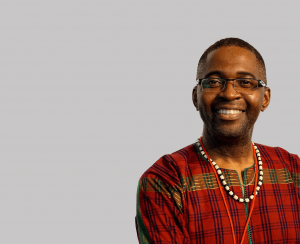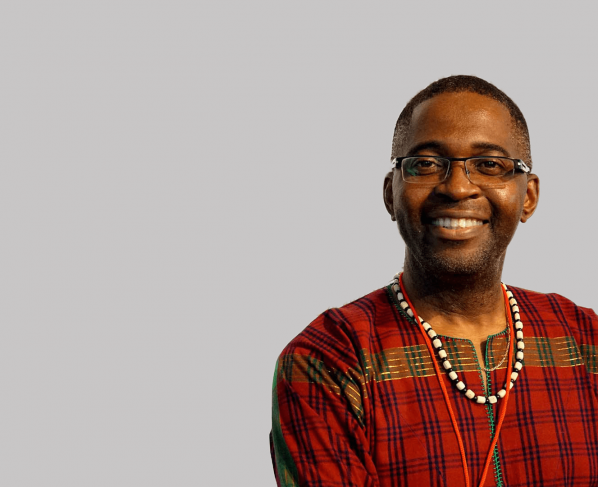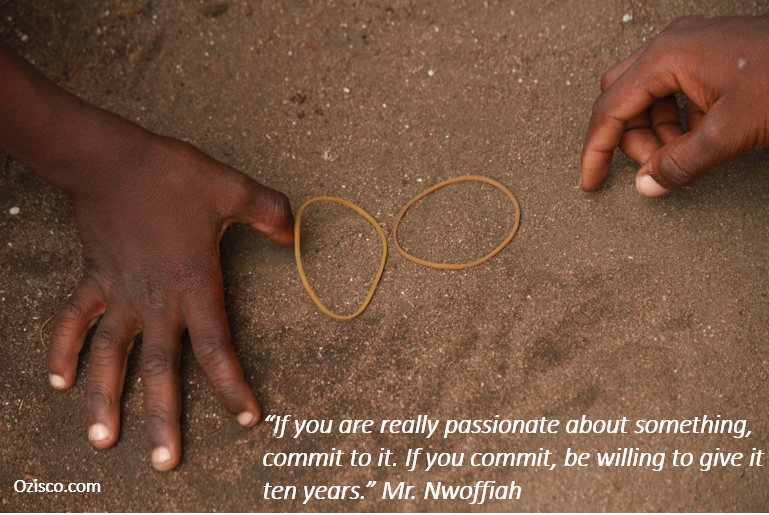“Until the lions have their own historians, the history of the hunt will always glorify the hunter.” Chinua Achebe
 When you let someone else tell your story, they’re likely to leave out important details. It matters who controls the narrative; so whatever you do, work hard to control your narrative and tell your truth.
When you let someone else tell your story, they’re likely to leave out important details. It matters who controls the narrative; so whatever you do, work hard to control your narrative and tell your truth.
Chike Nwoffiah is on a mission to change the narrative of Africa which is what compelled him to start Silicon Valley African Film Festival (SVAFF) nine years ago. Chike permeates an intense amount of positive energy and belief that fuels his drive to get Africans to tell their authentic stories. He has brilliantly guided SVAFF from just an idea to international recognition. As SVAFF heads into its 9th year (Oct. 4-7, 2018) of screening films from Africa created by African filmmakers, I caught up with Chike to learn more about his drive and what actionable advice he can pass on to us.
1. Briefly describe your background and how you got started.
I was born and raised in Nigeria. I grew up in a very loving home where education was a priority. My love for the creative industry started very early in my life at about the age of 4 when I starred in my very first stage play. I still have very vivid memories of the rehearsals, costumes and the performance to the entire school community of students, parents, and teachers. From then on, I was immersed in theater and this continued through college and beyond. Although in college, I was in business school, my heart was on stage and so for all my years in college, I starred in every play that was mounted by our student theater company. Years later, as fate brought me to Silicon Valley California for further studies and work, I slowly found myself consumed by the chore of a corporate career and while I was making good money as a young (24-year-old) corporate strategic planner, I knew something was missing. My heart yearned for a creative outlet which the hustle and noise of corporate America weren’t giving me. So after about six years in the Silicon Valley corporate world, I began my transition to the creative industry and have never been happier. Today, I run a California based full-service media production company, Rhesus Media Group, with offices in Cape Town, South Africa and Lagos, Nigeria. We provide end-to-end media services to private and corporate clients as well as produce our content. We presently have a feature film, A Rose for Freddy, which I directed, scheduled for release in theaters across Nigeria in August of this year. I also founded the Silicon Valley African Film Festival, an annual showcase of films by Africa’s talented seasoned and emerging filmmakers. The festival was started to confront the sad reality that after over half a century of independence in Africa, most of the continent’s narratives are still told by people who are so many degrees removed from the continent. These historically distorted narratives have led to blurred interpretations and blurred perceptions of Africa, and our way of life. I am convinced that by creating a platform for Africa’s content creators to share their authentic stories with the world, we can engage the global community in a different dialogue about Africa. The film festival has grown in 9 years to become an annual destination event that draws international filmmakers, celebrities, and visitors to Silicon Valley. What I find most exciting and rewarding for me is that I have found a way to live my passion and make an impact in the process. My business school training continues to give me the professional discipline to successfully run my businesses and execute projects, while my talent and skills in the creative arts allow me to share my African heritage on a global stage. I wake up every day excited to go to work. Outside of my beautiful wife and son, I couldn’t ask for a better blessing than the opportunity to make a living doing what I love.
2. Flashback and then fast forward to the present, what has surprised you the most about your journey (with SVAFF) thus far?
The pleasant surprise or the “happy story” about SVAFF is the pace of growth we have achieved in such a short amount of time. The festival has grown from a one-day event that showcased 16 films to a full three days of programming last year with 93 films from 30 countries. Our offering has now expanded to include a fashion show, live performances, food, African market, and in 2018, we will debut our “Virtual Africa” lounge where guests can experience virtual reality content from Africa. The community support has also been stellar as several individuals and organizations rallied around the idea from the very first year and made sure that we kept it going even during the challenging times. SVAFF has become a community-owned event, and this is what I always wished it to be – no one person’s event, but our event.
3. Why is the cause you are pursuing or problem you are solving the most important for this generation, how would future generations benefit if it’s successful, and what is at risk if you do not succeed?
Africa can no longer be ignored in the global economic, social and political space. With a population of more than 1 billion people, expected to double by mid-century, Africa offers an enormous potential market. While the rest of the world is aging, Africa is young with about 20% of the population between the ages of 15 and 24. And while the global workforce may be shrinking, in a few years Africa’s workforce will number some 1.1 billion, surpassing that of China and India.
This huge slice of the global population cannot be reduced to myopic soundbites that only perpetuate historical stereotypes. I am humbled that I have been able to dedicate my work to challenging the complex networks of ignorance, prejudices and stereotypes underpinning Africa’s pernicious misrepresentation in the media as a place of turmoil, deprivation, wildlife, ethnography, the spectacular, bewildering, ambiguous, haunting, and casting Africans as simple folks in need of guiding hands or, belittling noble savages. The recent US president’s characterization of African nations as “s#*#hole countries” is a prime example of this kind of ignorance driven bigotry.
To allow the myopic single story narratives of Africa to dominate our understanding of Africa deprives our children the opportunity to engage with the world’s brightest, most diverse and vibrant minds. Stories inform our perceptions, and our perceptions inform our behavior. Until the global community stops seeing Africa and Africans as “less than”, the balance of social, political and economic power will remain tilted against Africa. In this, therefore, failure is not an option for me.
4. Reflect on all of the key milestones you’ve had so far in building SVAFF to what it is today. Which of these milestones would you say is the most pivotal and why?
We are at a very critical juncture right now at SVAFF as we present our 9th season with an eye on our 10th anniversary next year. In reflection, I think the biggest milestone was year one. Birthing an idea is always the biggest step, getting it out of one’s head and giving it life. Not being sure if it will work, even though one has planned and prepared. We have indeed come a long way, and I feel blessed to be a vehicle that God has used to bring this to my community. There is always a moment at each festival when I stand in total wonder and humility as I watch the sea of people, shuffling about the festival grounds, laughing, chatting, hugging, just carrying on and being animated about films they have just seen or about to see. Those are the priceless moments when I appreciate how something that was once a thought in my head has become a gift to the community.
5. What is the best piece of actionable advice you’ve received that continues to be a source of inspiration in good times and challenging times?
My father always used to tell me – “If you are really passionate about something, commit to it. If you commit, be willing to give it ten years.” He always taught me to take the long view and stick it out. I am not sure SVAFF could have lasted this long if I didn’t have those words of wisdom constantly ringing in my head.
You can contact SVAFF by sending an email to office @ svaff.org
Stay connected and up to date on the latest from SVAFF via Twitter, Facebook, and YouTube.



